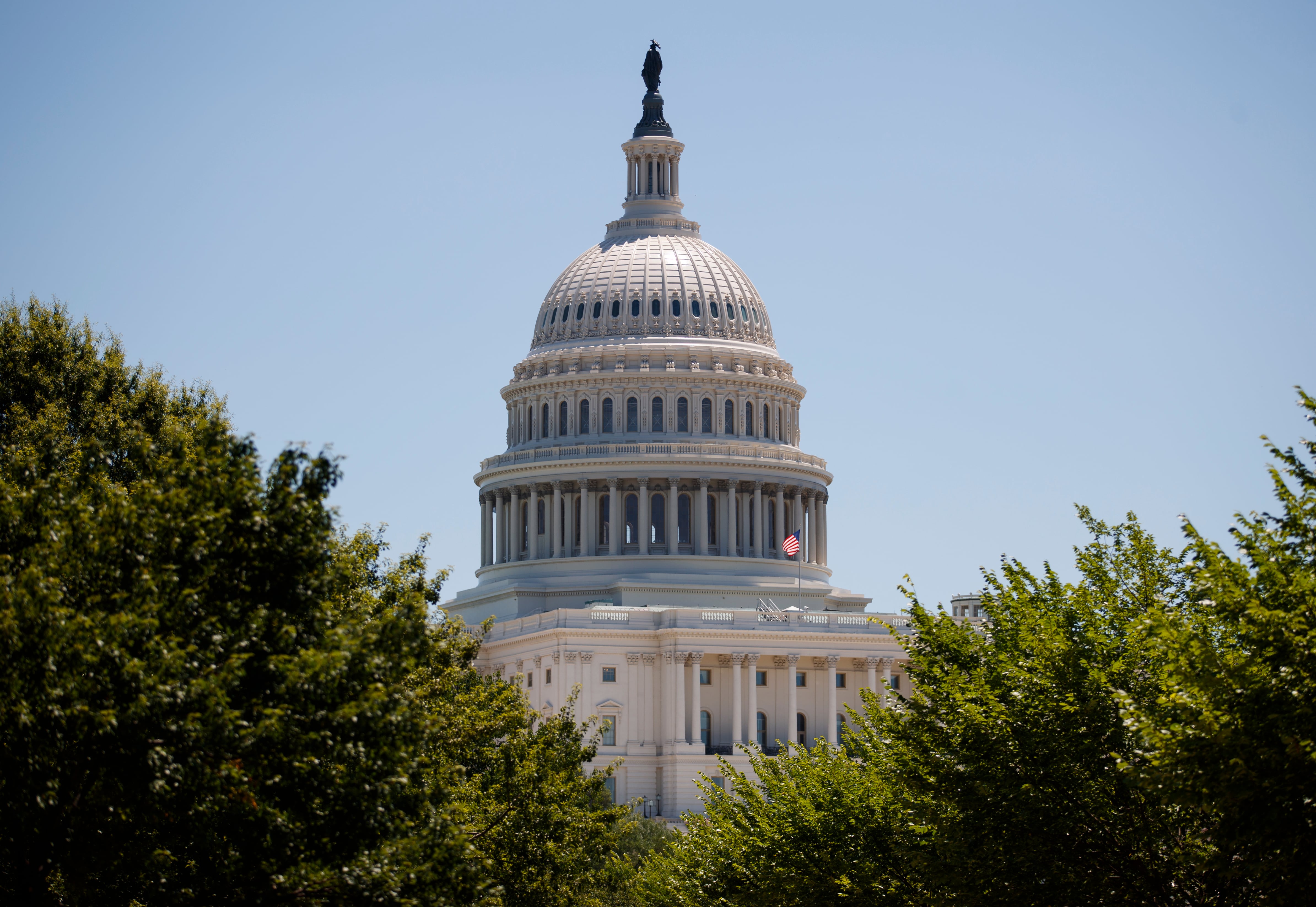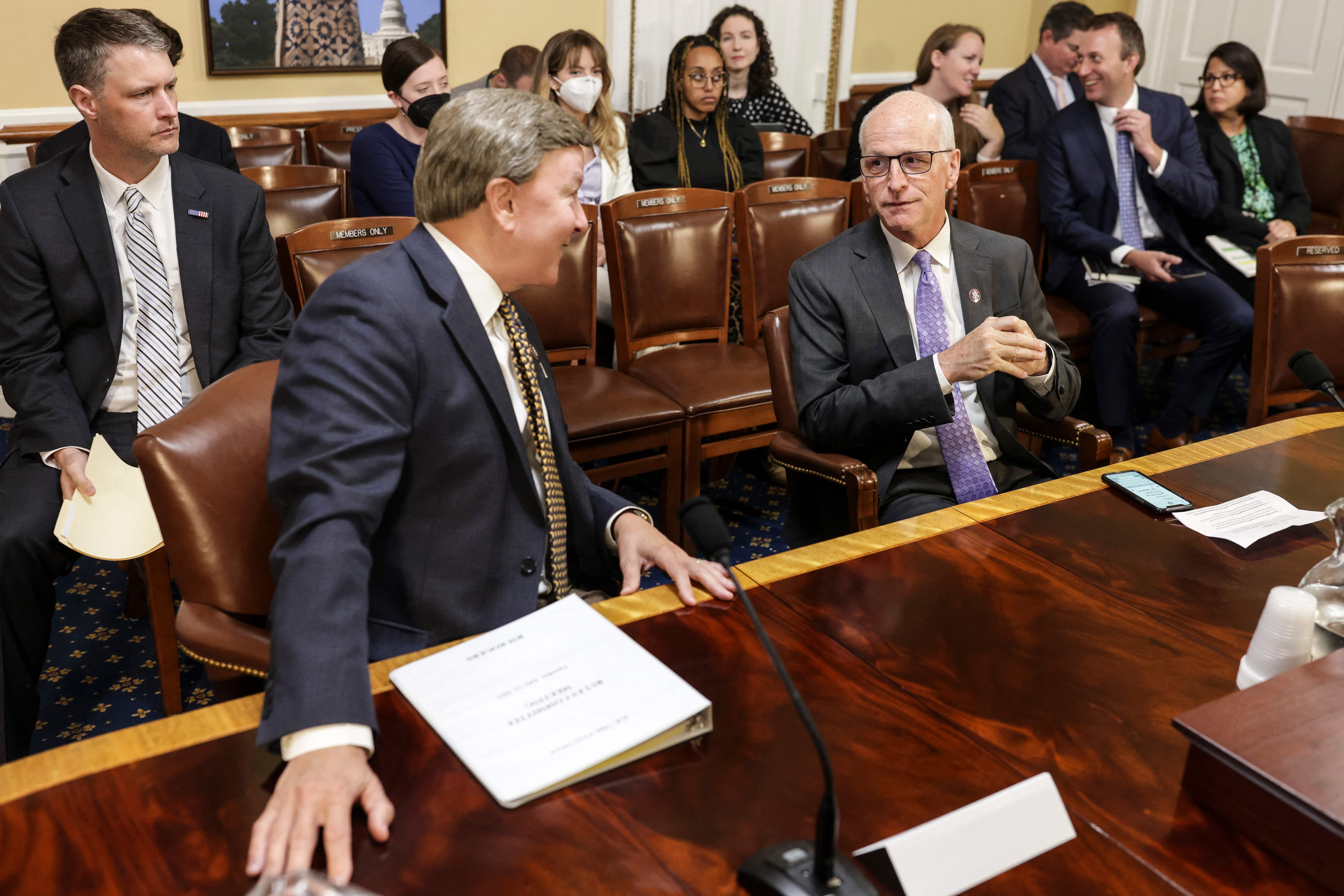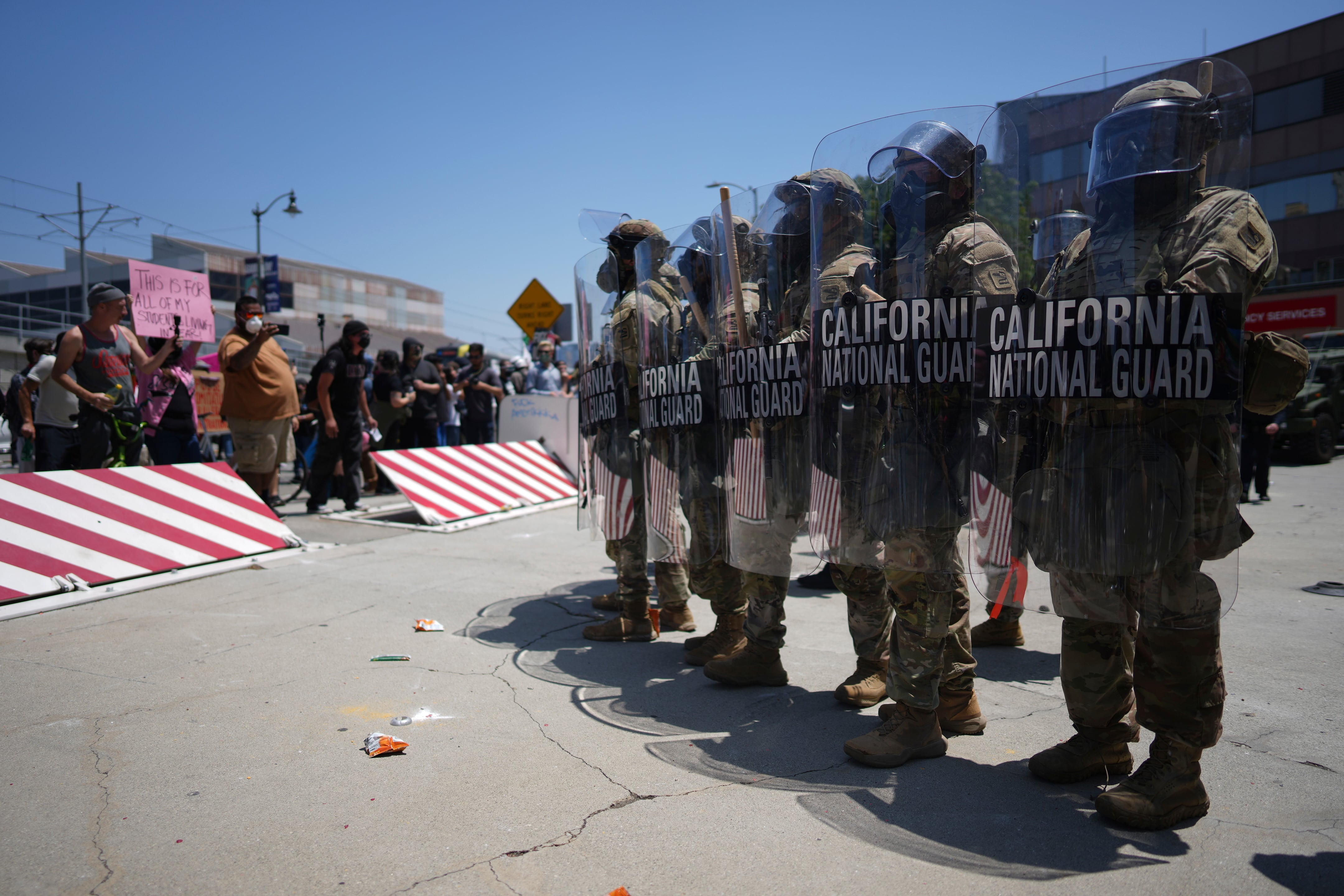WASHINGTON ― A House defense spending bill that aims to end the post-2001 war authorizations after eight months, pull military support in Yemen and fund the Pentagon at $8 billion less than what the White House requested, advanced out of committee in a 30-22 vote Tuesday.
Exemplifying the Democratic-controlled House’s willingness to check President Donald Trump on foreign policy and military matters, the House Appropriations Committee’s bill revives the years-old war authorization debate amid heightened tension between the U.S. and Iran. It also tees up fights with the GOP-led Senate and the White House over the bill’s $690.2 billion defense top line for 2020.
Partisan policy disputes eclipsed top-line talk as the committee marked up the bill. The real debate over how much to raise budget caps for the defense and nondefense sides of the budget was happening at a meeting between White House officials and Congress’ four top party leaders Tuesday morning.
At the markup, lead Republicans opposed the bill absent a larger spending agreement with the White House, voicing fears that without a deal, budget caps would be exceeded, triggering steep sequestration budget cuts.
They also opposed language to restrict the Pentagon’s authority to transfer money between accounts to $1.5 billion ― a response from Democrats to Trump’s use of defense funds for his proposed border wall that the panel’s top Republican, Rep. Kay Granger, called “a poison pill.”
“The bill includes many critical investments, which is why it’s so unfortunate that important initiatives that have broad support are overshadowed by new restrictions on the department’s ability to provide lawful assistance to other agencies in combating the real crisis on our southern border,” said Rep. Ken Calvert, R-Calif., the ranking member on the committee’s defense subpanel.
House Appropriations Committee Chairwoman Nita Lowey, D-N.Y., and other Democrats touted the bill’s 3.1 percent military pay raise and other personnel-focused spending as well as its rejection of Trump’s plans to get around mandatory spending caps by shifting almost $100 billion extra into the overseas war account.
The bill also rejects the Pentagon’s request for $72 million to build a Space Force headquarters and instead grants $15 million so it can explore alternatives. The bill also strips funding from the Pentagon’s JEDI cloud computing program.
The Republican minority was unsuccessful in fending off other language targeting the administration, chiefly California Democratic Rep. Barbara Lee’s amendment to sunset the 2001 authorization of the use of military force, or AUMF. Calvert and other Republicans said the 2001 AUMF covering the Islamic State group and al-Qaida must be replaced before it’s phased out as proposed.
“As imperfect as it may be, the 2001 AUMF is the foundational U.S. authority for ongoing operations in Afghanistan, against al-Qaida and against ISIS,” Calvert said. “These fights are so critical to our national security that it would be irresponsible and dangerous to repeal the 2001 AUMF until we replace it.”
Pentagon and State Department officials have asserted the president has the legal authority to indefinitely keep U.S. forces in Iraq and Syria. However, saber-rattling from Trump’s advisers toward Iran has prompted new focus on Capitol Hill regarding the boundaries of existing war authorizations.
“This body, Democrats and Republicans, can in eight months debate the costs and consequences of the wars that we’re engaged in,” Lee said. “We have have been missing in action, we have abdicated our responsibility. We have a job to do for the American people.”
RELATED

The panel also passed Maryland Democrat Rep. Dutch Ruppersberger’s amendment to end U.S. military support for the Saudi-led military campaign in Yemen. Operations against al-Qaida, cooperation with Israel and intelligence gathering to counter threats in Yemen are exempted by the amendment.
Panel Republicans again backed Trump, who last month vetoed a congressional resolution that invoked the War Powers Act to end U.S. involvement in the Saudi-led war in Yemen. The House subsequently failed to override the veto.
The committee voted down a Republican amendment that would have added $8 billion across each of the services’ operations and maintenance accounts, under the cap-exempt wartime budget.
“I see that leaders on both sides of the aisle are beginning the conversation on a caps deal. That’s good, but here we are in our sixth markup today and we still do not have real figures with which to mark,” said the amendment’s sponsor, Rep. Steve Womack, R-Ark., the House Budget Committee’s ranking member.
Joe Gould was the senior Pentagon reporter for Defense News, covering the intersection of national security policy, politics and the defense industry. He had previously served as Congress reporter.










